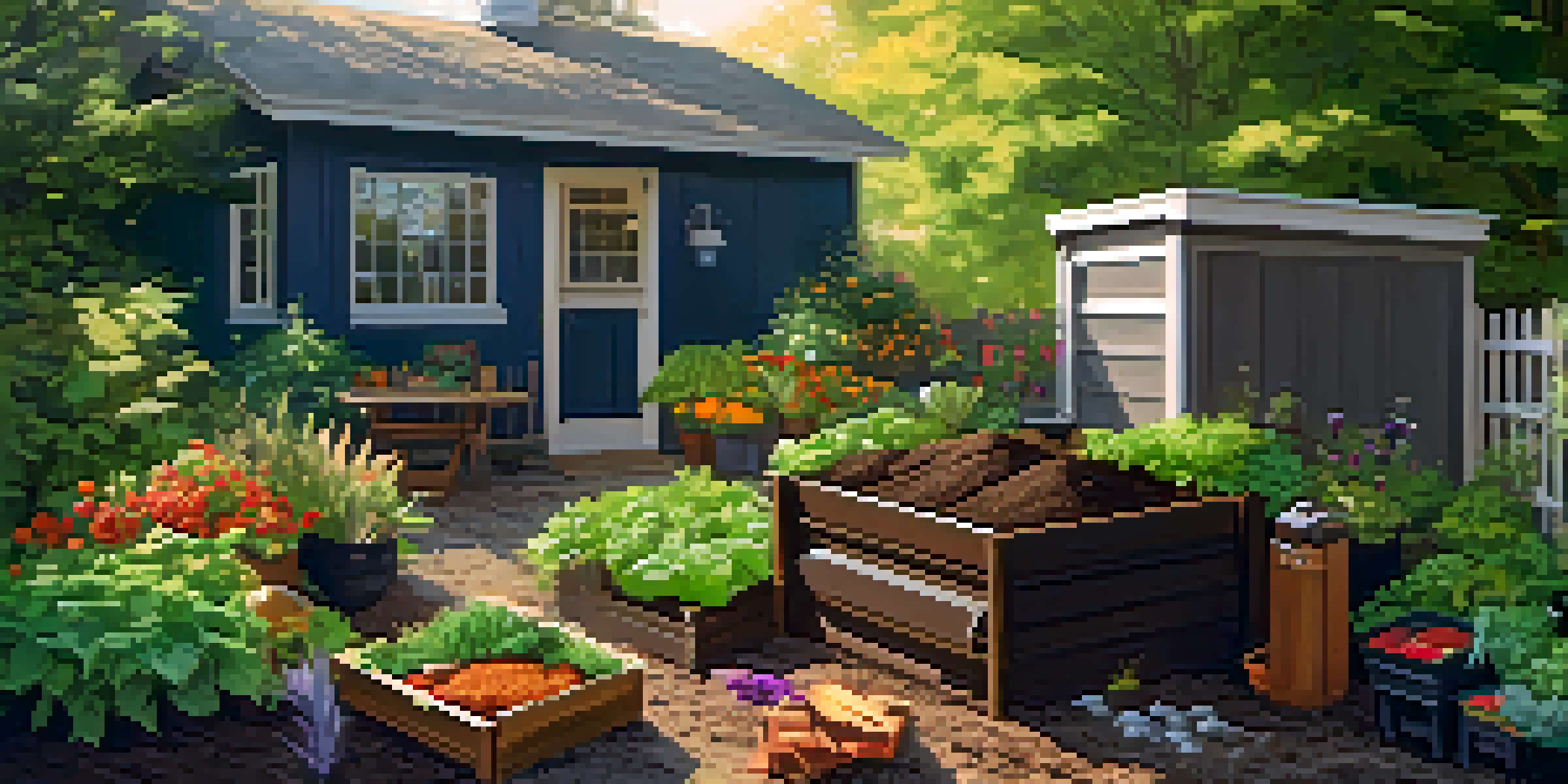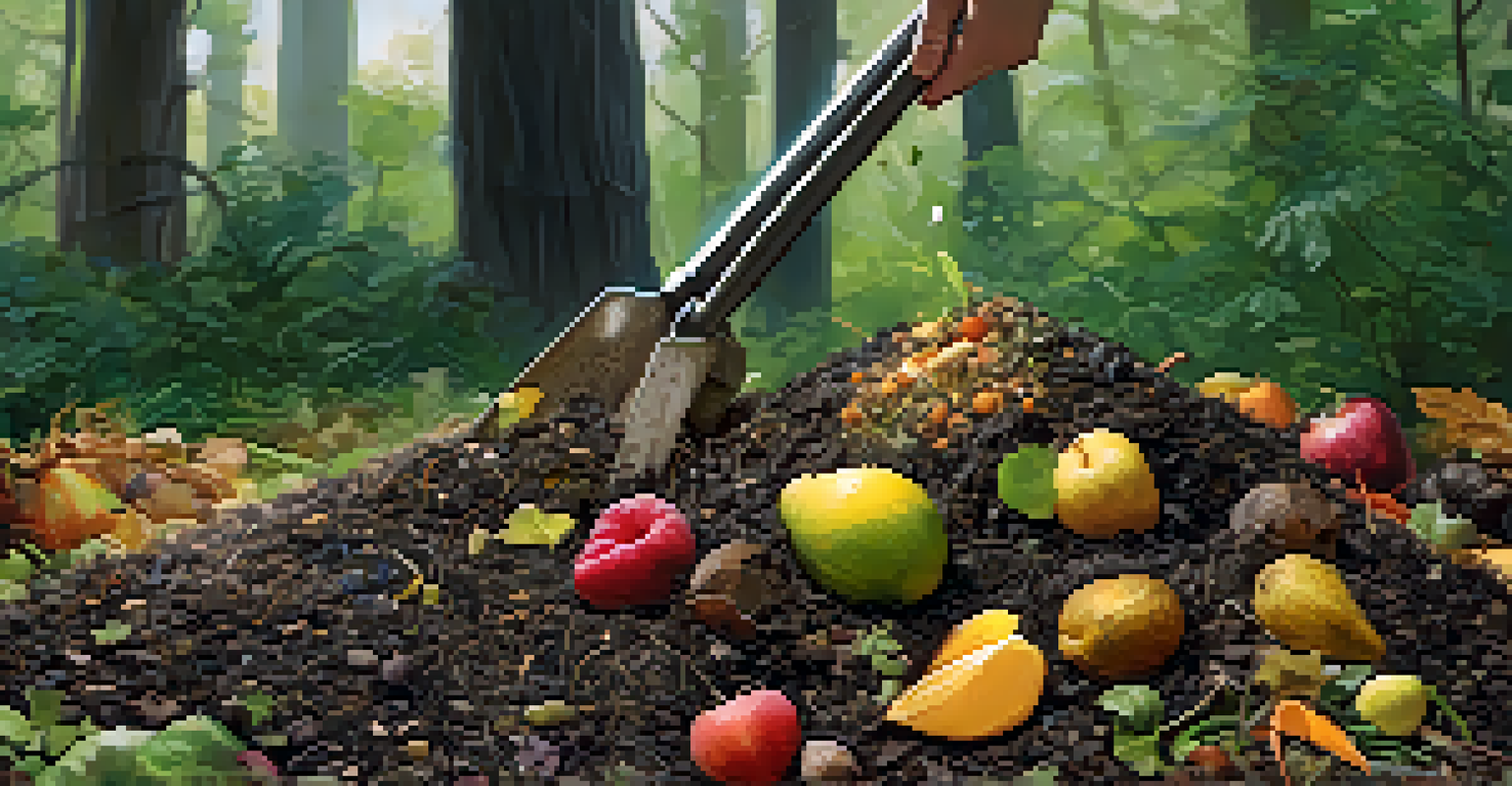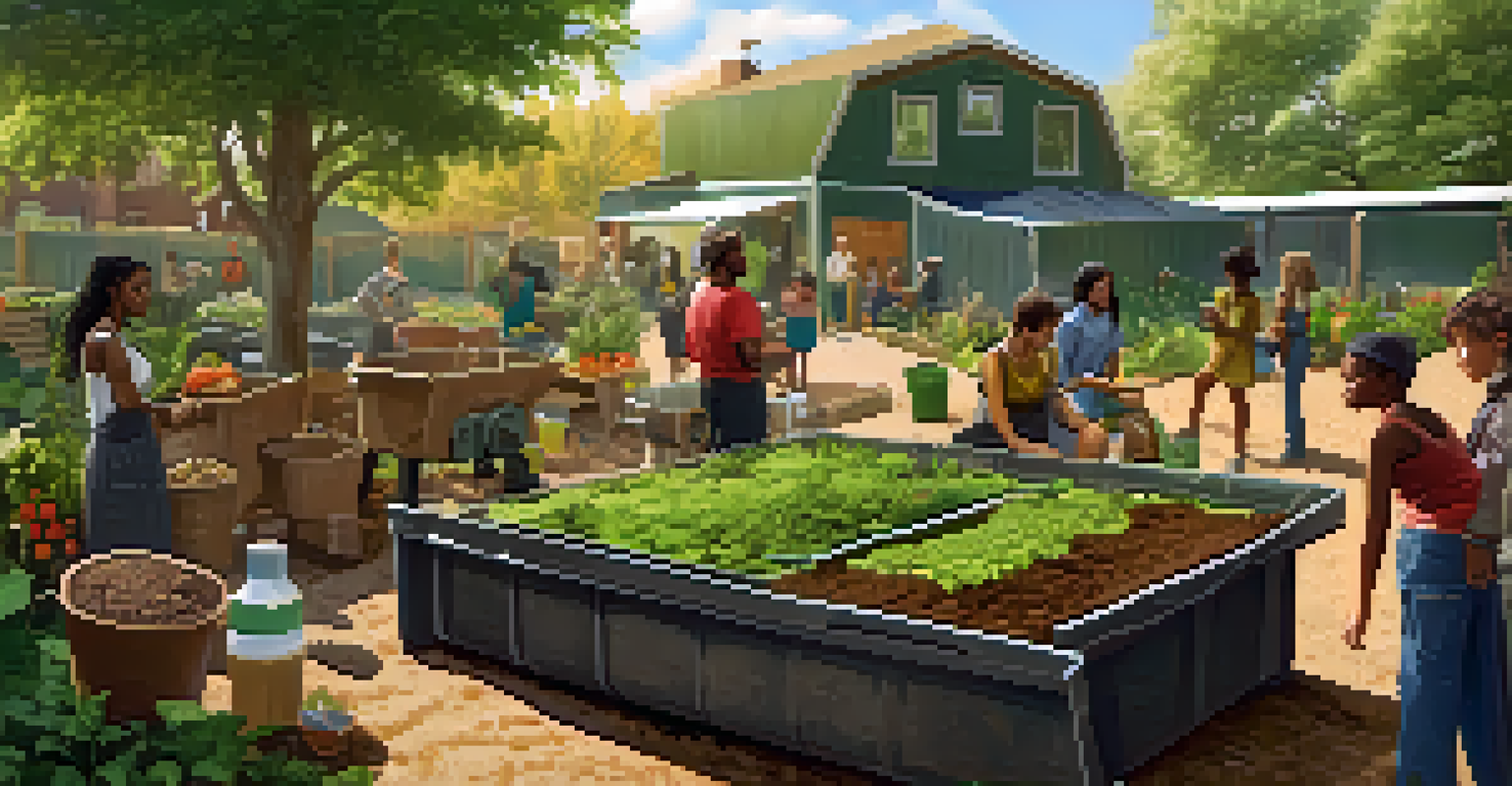Composting Basics: Turn Kitchen Waste into Garden Fertilizer

What is Composting and Why Should You Care?
Composting is the natural process of recycling organic matter, like kitchen scraps and yard waste, into a valuable fertilizer known as compost. It’s a simple yet powerful way to reduce waste while nurturing your garden. By composting, you not only minimize what goes to landfills but also create a nutrient-rich resource for your plants.
Composting is the ultimate solution to waste management and soil health. It creates a cycle of life where we nourish the earth with what we previously deemed waste.
Imagine your kitchen waste as a treasure trove of nutrients waiting to enrich your garden. Instead of tossing vegetable peels, coffee grounds, and eggshells into the trash, you can transform them into something beneficial. This process not only helps the environment but also saves you money on store-bought fertilizers.
Plus, composting contributes to healthier soil, which leads to healthier plants. It’s a win-win situation that promotes sustainability and enhances your gardening experience. So, are you ready to dive into the world of composting?
Essential Ingredients for Successful Composting
To create a balanced compost pile, you need a mix of 'greens' and 'browns.' Greens include nitrogen-rich materials like vegetable scraps and grass clippings, while browns consist of carbon-heavy items such as dried leaves and cardboard. Striking the right balance between these two types of materials is crucial for effective decomposition.

Think of it as making a recipe: too much of one ingredient can spoil the dish. A good rule of thumb is to aim for a ratio of about 3 parts browns to 1 part greens. This balance helps microorganisms flourish, breaking down the organic matter efficiently.
Composting Reduces Waste and Costs
By composting kitchen scraps and yard waste, you minimize landfill contributions while creating a nutrient-rich fertilizer for your garden.
Additionally, you can add other materials like coffee grounds, fruit scraps, and even shredded newspaper to enhance your compost mix. By understanding these ingredients, you’ll be well on your way to creating a thriving compost pile that benefits your garden.
Setting Up Your Composting System
Before you start composting, you need to choose a suitable location and system. You can opt for a compost bin, a pile in your backyard, or even a worm bin if you're short on space. Each option has its advantages, so think about what fits your lifestyle and garden best.
The greatest threat to our planet is the belief that someone else will save it.
If you have a larger yard, a compost pile can be a simple and effective way to manage your waste. For smaller spaces, a compost bin keeps everything contained and tidy. Worm bins, or vermicomposting, are great for apartments, turning kitchen scraps into nutrient-rich worm castings with minimal odor.
Once you've chosen your system, make sure it’s easily accessible and receives a good amount of sunlight and airflow. These factors will help speed up the decomposition process, making your composting journey a breeze.
Maintaining Your Compost Pile for Optimal Results
Maintenance is key to a successful compost pile. Regularly turning your compost helps aerate the materials, promoting faster decomposition and preventing unpleasant odors. Aim to turn it every few weeks, or whenever you notice it looks compacted.
Monitoring moisture levels is also important—your compost should be about as damp as a wrung-out sponge. If it’s too dry, add some water; if it’s too wet, incorporate more browns to balance it out. Keeping an eye on these elements ensures your composting process stays on track.
Balance Greens and Browns for Success
Achieving the right mix of nitrogen-rich greens and carbon-heavy browns is essential for effective composting and decomposition.
Additionally, watch for any unwanted visitors like pests or odors. If you notice these issues, revisit your composting balance or consider covering it to deter animals. By staying proactive, you can enjoy a healthy compost pile that transforms your kitchen waste effectively.
When is Your Compost Ready to Use?
One of the most rewarding aspects of composting is using your finished product in the garden. But how do you know when your compost is ready? Generally, it takes about three to six months for compost to mature, depending on factors like temperature, moisture, and the materials used.
Finished compost is dark, crumbly, and has an earthy smell—a sign that it’s rich in nutrients and ready to nourish your plants. If you still see recognizable scraps, it may need more time to break down. Patience is key; the end result will be worth the wait.
Once your compost is ready, you can mix it into your garden soil, use it as a top dressing for your plants, or even create compost tea for a nutrient boost. Incorporating compost not only enriches your soil but also enhances your garden's overall health.
Common Composting Mistakes to Avoid
Even seasoned composters can make mistakes, so it’s important to know what to avoid. One common error is adding meat, dairy, or oily foods, which can attract pests and create odors. Stick to plant-based materials to keep your compost pile happy and healthy.
Another mistake is not achieving the right balance of greens and browns. Too much nitrogen can lead to a smelly, slimy mess, while too much carbon slows down decomposition. Remember to regularly check your compost and adjust as needed to maintain that perfect ratio.
Know When Your Compost is Ready
Finished compost is dark, crumbly, and earthy-smelling, indicating it's ready to enhance your garden's soil and plant health.
Lastly, ignoring moisture levels can hinder the composting process. If your pile is too dry, decomposition slows down; if it’s too wet, it can become anaerobic and start to smell. By keeping these common pitfalls in mind, you can improve your composting success.
Expanding Your Composting Knowledge and Practices
As you grow more comfortable with composting, consider expanding your knowledge and practices. There are various techniques, such as hot composting, which speeds up the process by maintaining higher temperatures, or bokashi composting, which uses fermentation to break down waste. Each method has unique benefits and can cater to different lifestyles.
You might also explore how to compost specific materials like yard waste, leaves, and even certain types of paper. Learning about these options can help you become a more efficient composter and reduce waste further. Plus, it’s an excellent way to engage with the gardening community.

Don’t hesitate to connect with local gardening groups or online forums where you can share experiences and tips. Composting is not just about recycling waste; it’s about fostering a community and enriching our environment together.